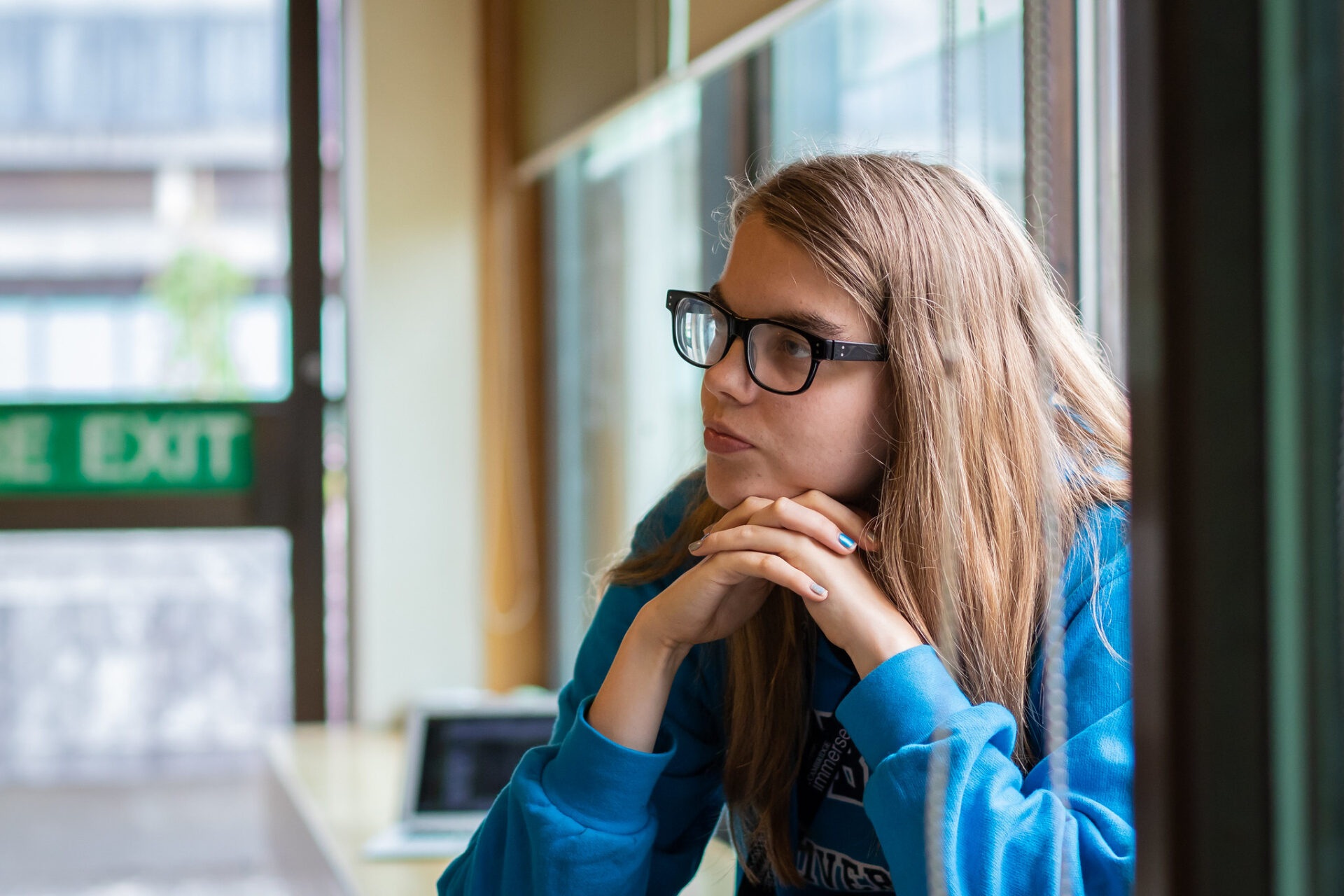Critical thinking is an essential skill that enables students to approach challenges with clarity and insight. It involves questioning assumptions, evaluating evidence, and making well-informed decisions. Rather than simply absorbing information, critical thinking encourages a deeper understanding and the ability to apply knowledge effectively.
This article delves into the importance of critical thinking for students, its role in academic and personal growth, and practical approaches to developing this skill. Whether navigating schoolwork or preparing for future careers, honing critical thinking equips students for success in all areas of life.
What Is Critical Thinking?
Critical thinking is a skill that enables students to analyse information, solve problems, and make informed decisions. At its core, critical thinking is the ability to think rationally, evaluate evidence, and form reasoned judgments. Far beyond memorisation or rote learning, critical thinking involves questioning, exploring, and understanding different perspectives.
For students, this capability becomes a foundation for success in both academic and everyday life. Whether you’re debating a current issue in class or deciding how to manage your time, applying critical thinking ensures thoughtful and effective solutions. But what exactly does this skill entail, and how can it be nurtured? Before we explore its role and benefits, let’s break it down further.
Critical thinking means asking questions like “Why?” “How?” and “What if?” It also involves identifying assumptions, avoiding bias, and relying on solid evidence. These practices help students not just learn, but comprehend on a deeper level.
Exploring the Connection Between Communication and Critical Thinking
While critical thinking and communication may seem distinct, they intersect when it comes to critically evaluating what others say and responding thoughtfully. Communication becomes a tool for expressing curiosity, asking questions, and engaging in meaningful dialogue.
Purpose of Critical Thinking
Critical thinking sharpens decision-making by encouraging students to analyse information and question assumptions. For example, in a group project, critical thinking helps students evaluate ideas, while communication allows them to ask clarifying questions and share insights.
- Listening Actively: Active listening is essential for critical thinking. By paying close attention to what others say, you can assess the validity of their arguments and respond with curiosity or counterpoints.
- Asking Thoughtful Questions: Critical thinking thrives on curiosity. Communicating your questions or doubts helps deepen understanding and fosters richer discussions.
- Collaborating Effectively: Collaboration combines diverse perspectives, and communication ensures these ideas are shared and refined.
For instance, a university student preparing a research report might critically evaluate sources and then communicate their findings clearly to persuade their audience. In this way, communication transforms critical thinking into actionable insights, bridging the gap between analysis and interaction.
Importance of Critical Thinking for Students
Critical thinking is not just a buzzword; it is an essential skill that prepares students for success far beyond the classroom. Here’s why.
Academic Achievement
Ready to take your learning further?
Join Succeed, our free platform for ambitious students aged 13-18 to get future-ready. Access expert-led masterclasses, interactive
goal-setting tools, and exclusive content.
One of the greatest advantages of critical thinking is how it impacts a student’s academic performance. Education is no longer simply about absorbing facts; it’s about interpreting them, applying them, and forecasting outcomes. When working through complex assignments or reviewing academic material, critical thinking ensures that students challenge assumptions rather than accept them at face value.
For instance, during a literature analysis, a student applying critical thinking doesn’t just take a character’s actions as given. Instead, they consider the context, motivations, and implications, giving their interpretations more depth.
Problem-Solving and Decision-Making
Life is a series of decisions, and students face these daily. By developing critical thinking skills, they enhance their ability to evaluate options and arrive at well-reasoned solutions. Whether it is deciding which extracurricular activities to take on or solving real-world problems, students with critical thinking abilities make better decisions.
For example, budgeting during university often requires weighing priorities. Should a student spend money on a textbook upfront or borrow it from the library to save for groceries? Strong critical thinking skills provide the tools necessary to assess options based on consequences.
Preparation for the Future
The importance of critical thinking for students extends well into their future careers. Almost every professional field welcomes individuals who can think on their feet, resolve conflicts, and adapt quickly. Whether working in law, healthcare, or engineering, critical thinking prepares students to become valuable team members and leaders.
Imagine a role like data analysis; here, critical thinkers don’t just report figures, but ask futuristic questions like, “What patterns are emerging?” or “What recommendations will this analysis lead to?”
Critical thinking means smarter learning today and a more rewarding professional life tomorrow.
Benefits of Critical Thinking
There are countless advantages of critical thinking that directly support daily academic and personal life. These include:
- Better Decision-Making: From selecting courses to forming opinions on societal issues, students with strong reasoning make better decisions.
- Improvement in Research Skills: Critical thinking sharpens your ability to assess sources, weed out unreliable information, and create logical analyses.
- Enhanced Creativity: Thinking critically isn’t only about logic; it also opens avenues to innovative ideas by encouraging perspective-based exploration.
- Stronger Self-Awareness: Critical thinking allows students to identify their beliefs and challenge long-held assumptions. This leads to personal growth and better emotional intelligence.
- Improved Communication: Critical thinkers express themselves more articulately because they base ideas on sound reasoning, not guesses.
Want to maximise these benefits? It’s time to think about how to actively develop critical thinking.
How to Learn Critical Thinking
Critical thinking is not something you’re born with; it’s a skill you can build and refine. Below are strategies to help students enhance their critical thinking ability.
1. Ask More Questions
Adopting a curious mindset is the first step. Every time you’re presented with a statement in class or in life, ask questions like “What evidence supports this?” or “Are there alternative explanations?” This habit shifts your mindset from passive acceptance to active inquiry.
2. Engage in Problem-Solving Exercises
Practice makes perfect. Activities such as solving puzzles, debating issues, and writing essays require students to evaluate factors critically. Joining a debate team or solving group challenges can greatly improve analytical thinking.
3. Read Widely and Critically
Reading academic and non-academic content exposes students to diverse viewpoints. Read with a purpose, identifying biases, questioning assumptions, and noting inconsistencies.
Internal resources like effective university education or helpful study tips can guide you in applying these new habits.
4. Practice Reflection
Take time to think about what you’ve learned. After finishing schoolwork, reflect on what strategies worked, what didn’t, and why. This helps cement knowledge and refine your critical thinking process.
5. Seek Feedback
Collaboration is key. Engage with peers or mentors to review your reasoning. Fresh perspectives help identify gaps you may have missed.
6. Learn to Manage Bias
Bias affects everyone and clouds thinking. Work to recognise patterns of bias, both in others and yourself. Spotting bias opens the doors to objective decisions and logical reasoning.
7. Apply Concepts Practically
Whether by volunteering, joining group initiatives, or involving yourself in real-life challenges, applying theories in practical settings builds deeper understanding and confidence.
Building critical thinking takes time, but the rewards surpass the efforts. The earlier you start building this habit, the more you prepare yourself for big opportunities ahead.
Conclusion
Critical thinking is the linchpin that connects learning with lasting success. For students, it lays the groundwork for effective decision-making and future achievement. Whether you’re aiming for academic success, personal clarity, or a rewarding career path, cultivating critical thinking is the first step toward a stronger and brighter future. Start practicing today, and the benefits will stay with you for a lifetime.

















